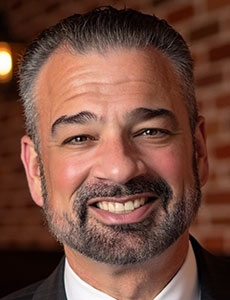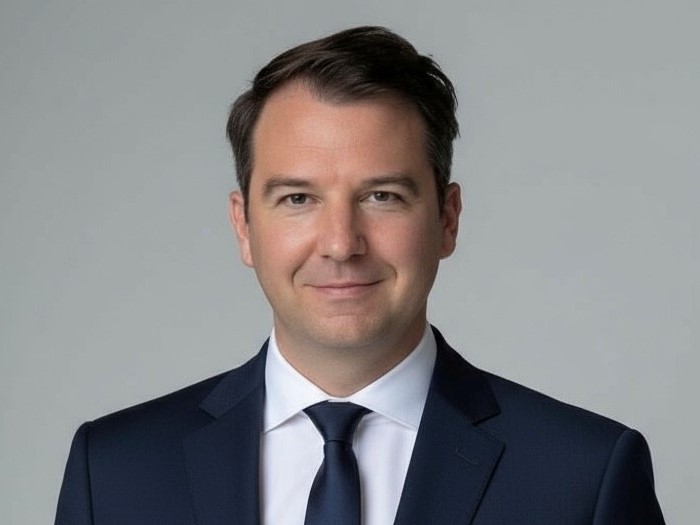2025 Theo Award Winner: School District of Philadelphia
![]() When the School District of Philadelphia began welcoming students and staff back to in-person learning following the COVID-19 pandemic, the district faced mounting challenges.
When the School District of Philadelphia began welcoming students and staff back to in-person learning following the COVID-19 pandemic, the district faced mounting challenges.
Risk and lost-time claims were rising across the organization’s 330 locations, creating financial strain and operational difficulties. The district recognized the urgent need to develop comprehensive risk control standards to protect its workforce and control escalating costs.
Tackling the Problem
The School District of Philadelphia took decisive action by partnering with PMA Management Corp. to develop a comprehensive safety program that would address both immediate concerns and long-term risk management goals.
The district conducted extensive surveys and inspections across all facilities to identify problem areas, using this data to create a two-pronged approach addressing both pre-loss prevention and post-loss management.
Director of risk management Riccardo Zucaro spearheaded the initiative by building a dedicated safety team. The district hired Tanzil Cole as its first-ever program manager of safety, creating a new position within the risk management department. Additional support came from safety consultant Keith Freeman, working alongside PMA’s safety team to conduct comprehensive life safety inspections.
“My goal when we first started this, which was just myself and Tan and one other person from the TPA, was to go school to school and see what we identified as hazards, and then we’d put a report together,” Zucaro said. “It grew from there to where we’ve gone now two times around our school locations.”
The district established a safety committee to ensure staff and faculty received proper education about potential risks and exposures. The committee became a forum for discussing inspection findings and addressing specific challenges facing the school environment.
“We present findings from our inspection reports. Unfortunately, at the district, one of our key things is struck-by and struck-against assaults, which we are gradually getting down,” Zucaro said. The committees focused on practical solutions, including de-escalation techniques and clear protocols for teachers when student altercations occurred.

The School District of Philadelphia developed and distributed 18 different safety bulletins covering various risk factors, from seasonal hazards like snow removal to equipment-specific safety protocols.
However, Zucaro emphasized that direct communication proved most effective.
“The best method is direct. We meet with every single building engineer in the district because we do our inspections, and then we let them know when we meet with them that this is to help,” he said.
“We’re not there to say, ‘Oh, you’re doing this wrong.’ No. That’s not our goal. Our goal is to assist and point out things they may not realize is a risk.”

Riccardo Zucaro, director of risk management, School District of Philadelphia
The district implemented PMA’s data analytics system to review claims by site-specific data, enabling teams to pinpoint locations with frequent injuries, identify common themes, and develop targeted solutions. This data-driven approach helped create the Risk Control Action Log, ensuring all incidents were tracked and addressed systematically.
“With over 20,000 faculty and staff, the School District of Philadelphia (SDP) developed a comprehensive strategy in partnership with PMA Management Corp. to ensure all SDP facilities met comprehensive safety standards,” explained Ted Fricker, senior account executive, PMA Management Corp. “Their execution of this strategy resulted in a tremendous reduction in workers’ compensation claims and costs.”
Central to the district’s philosophy was transforming how employees approached workers’ compensation claims. Zucaro implemented a 24/7 availability model, ensuring employees could access support whenever needed.
“The approach I took to workers’ comp was to tell people they didn’t need an attorney. I go in and I tell them everything they need to know,” Zucaro explained. “The only time I feel people need an attorney is if they’re left out in the cold and nobody’s answering their questions. That’s not me; I answer and I help get them on the workers’ comp path.”
The district launched “Let’s Talk,” a messaging system that tracks response times and enables employees to ask questions directly. This initiative reinforced the district’s commitment to transparency and support.
Rather than fighting questionable claims, the district adopted a proactive approach focused on getting employees the treatment they needed quickly.
“Even the cases where it’s questionable whether it’s workers’ comp, I’m like, rather than we fight this, let’s accept it, get them into treatment, work with them to get them to return to work,” Zucaro said.
The district developed a robust modified duty program, working closely with panel providers and legal counsel to create comprehensive return-to-work strategies. Zucaro regularly met with medical providers to ensure alignment on treatment goals and realistic return-to-work timelines.
Success to Build On
The School District of Philadelphia’s comprehensive approach yielded remarkable results.
The district achieved nearly a 50% reduction in workers’ compensation claim costs for fiscal year 2023 compared to the post-COVID years of 2021-2022. These substantial savings enabled the district to redirect resources toward facilities improvements and educational initiatives.
Organization: School District of Philadelphia * Location: Philadelphia* Number of Employees: 19,649 * Category: Education
The Risk Control Action Log proved particularly effective, with 160 cases closed and actioned compared to just 13 ongoing cases. This systematic approach to incident management created opportunities to apply successful solutions across similar situations district-wide.
The district’s success further extended beyond cost savings to cultural transformation. Safety committee attendance improved once staff understood the program’s supportive, rather than punitive, nature. Building engineers and facility managers began actively engaging with the safety team, requesting resources and assistance with specific challenges.
“It’s about getting the message out there about safety with the building engineers, cleaning up clutter, the custodial staff when they clean the floors, de-escalation techniques with the teachers,” Zucaro said. “The message has gotten out there, and it’s been very positive.”
The district’s commitment to direct, personal communication proved essential to the program’s success. By conducting face-to-face meetings and maintaining physical presence throughout the organization, the risk management team built trust and credibility with staff at all levels.
“We put ourselves out there. They know who risk management is. They know that we’re here to help, and we’re a phone call away,” Zucaro noted. “I think the most important thing is connecting with people. Grassroots, get out there, see the issues.”
The partnership between the School District of Philadelphia and PMA Management Corp. demonstrated the power of collaborative risk management. By combining the district’s intimate knowledge of its operations with PMA’s technical expertise and data analytics capabilities, the partnership created sustainable solutions that addressed root causes rather than just symptoms.
“Congratulations to the team at the SDP for your Theo Award recognition and innovation in workers’ compensation programs,” added Fricker.
Looking ahead, the district continues to refine its approach, with plans to expand safety training and enhance communication systems. The success has generated enthusiasm across the organization, with staff increasingly viewing safety as a shared responsibility rather than an imposed requirement.
“It doesn’t work without my team. This is not a one-person effort. This is multiple people getting involved,” Zucaro said. “We don’t want employees to struggle. If they have any questions on workers’ comp, we’re here to help.
“It’s all about workers’ comp taking a village. It’s not a one-person country,” he continued, “and I have a really awesome village.” &
 The Theo Award celebrates its sophomore year, honoring 32 workers’ compensation programs for their excellence and service to workers across the nation. To learn more about the award and amazing qualities each winner possesses, visit here.
The Theo Award celebrates its sophomore year, honoring 32 workers’ compensation programs for their excellence and service to workers across the nation. To learn more about the award and amazing qualities each winner possesses, visit here.










